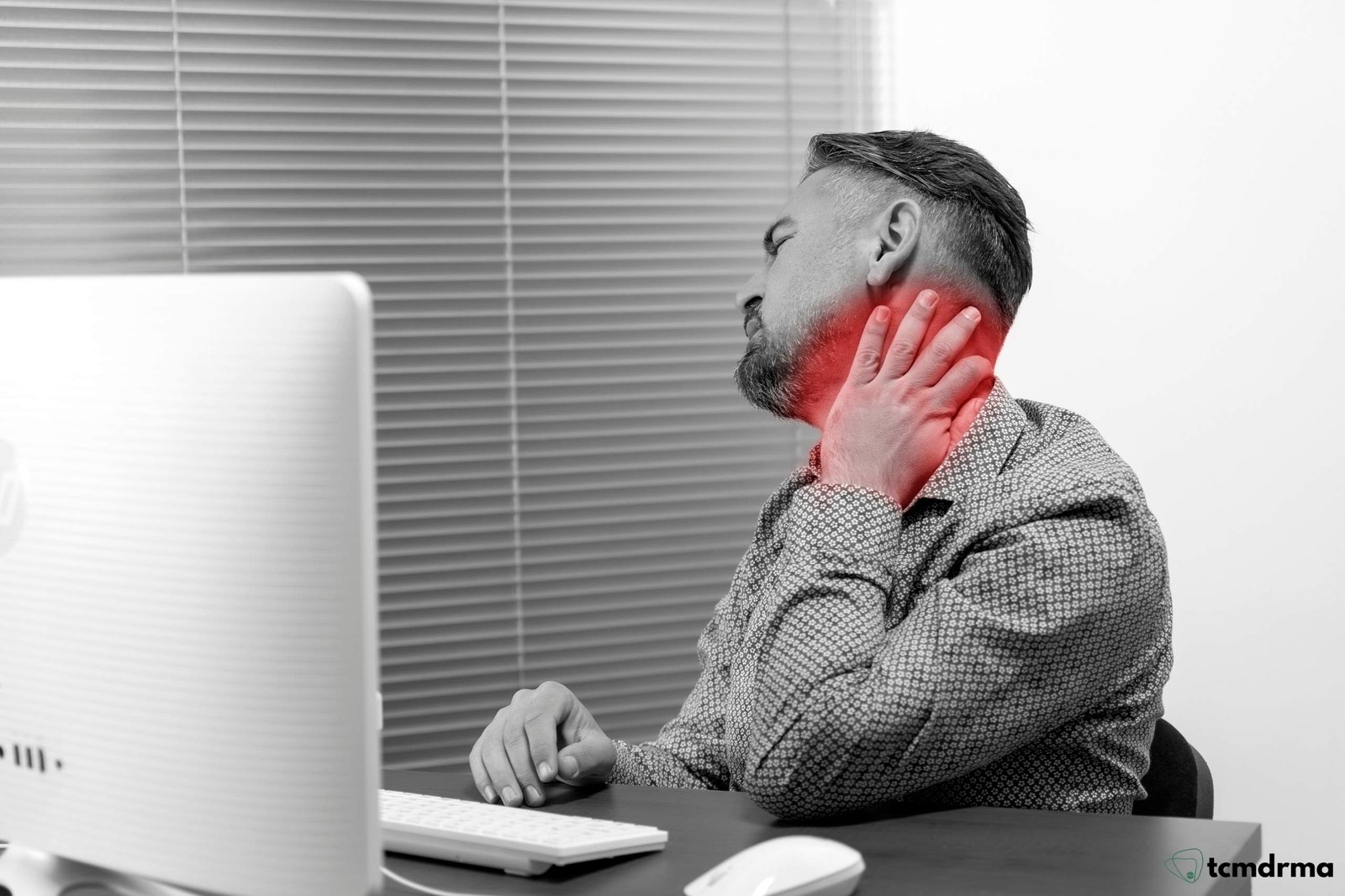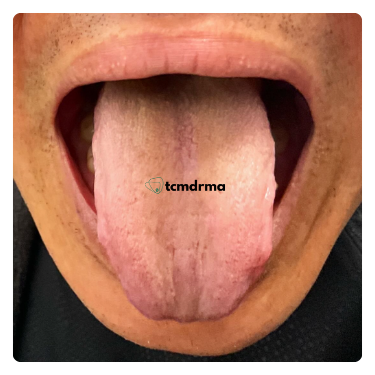
Brief Description
Shoulder stiffness and neck pain are widespread issues affecting people of all ages, often leading to discomfort and limited mobility. Typical symptoms include tightness, aching or sharp pain in the neck and shoulder areas, difficulty turning the head, and muscle tenderness. In more severe cases, pain may radiate to the arms or upper back, accompanied by headaches or numbness in the hands.
The primary causes of shoulder stiffness and neck pain can range from poor posture, especially from sitting for long periods (e.g., working at a desk), to muscle strain due to overuse or improper lifting. Stress and tension can also contribute, leading to muscle tightness and discomfort. Other factors may include injuries, such as whiplash, or degenerative conditions like cervical spondylosis.
Common Misconceptions
TCM Diagnosis
Typical Tongue

Typical Pulse
Taut and tight
TCM Pathogenesis
shoulder and neck pain is often attributed to problems with the "tendons" (筋), caused by a lack of nourishment from Qi and blood. This leads to muscle tension and stiffness. Acupuncture views it through the Wood element, which affects the tendons. In herbal medicine, it is categorized as "Jing Disease" (痉病), marked by muscle spasms or rigidity.
TCM Treatment
General Principle
The general treatment principle in TCM for shoulder stiffness and neck pain focuses on the affected areas. Acupuncture often involves the three Yang meridians of the hand and the Du meridian, with specific points selected based on the location of stiffness and pain. However, in some cases, shoulder and neck problems are linked to the three Yin meridians, which requires careful diagnosis through pulse examination. When there is significant Qi and blood deficiency, acupuncture alone may not be effective, and herbal medicine is needed to replenish Qi and blood for successful treatment. In such cases, local acupuncture alone offers little to no relief.
Unique Therapies We Apply
Treatment Plan
Precaution
Summary
Shoulder stiffness and neck pain are very common clinical conditions and are among the diseases where traditional acupuncture excels. However, improper treatment and failure to change daily habits can lead to recurring episodes. In most cases, acupuncture can effectively alleviate symptoms. For patients with poor Qi and blood status or low energy levels, it is necessary to first focus on replenishing their Qi and blood before proceeding with localized treatment for optimal results. Additionally, some patients may experience complications such as blood stasis or water retention, which can worsen symptoms and increase treatment difficulty, requiring a more holistic approach to treatment planning.

The Traditional Chinese Medicine treatment approaches outlined above are derived from my clinical experience, and I acknowledge there may be areas not fully covered or that require further refinement over time.
This content is intended to provide a learning reference for professionals and enthusiasts in Traditional Chinese Medicine and to help patients gain a better understanding of their conditions and common misconceptions.
However, I must emphasize that this information does not constitute specific treatment guidance. All TCM treatments must be tailored to the individual through thorough diagnosis by a qualified practitioner. Non-professionals should not attempt self-treatment based on this information, as any treatment conducted without professional supervision may carry potential safety risks.
